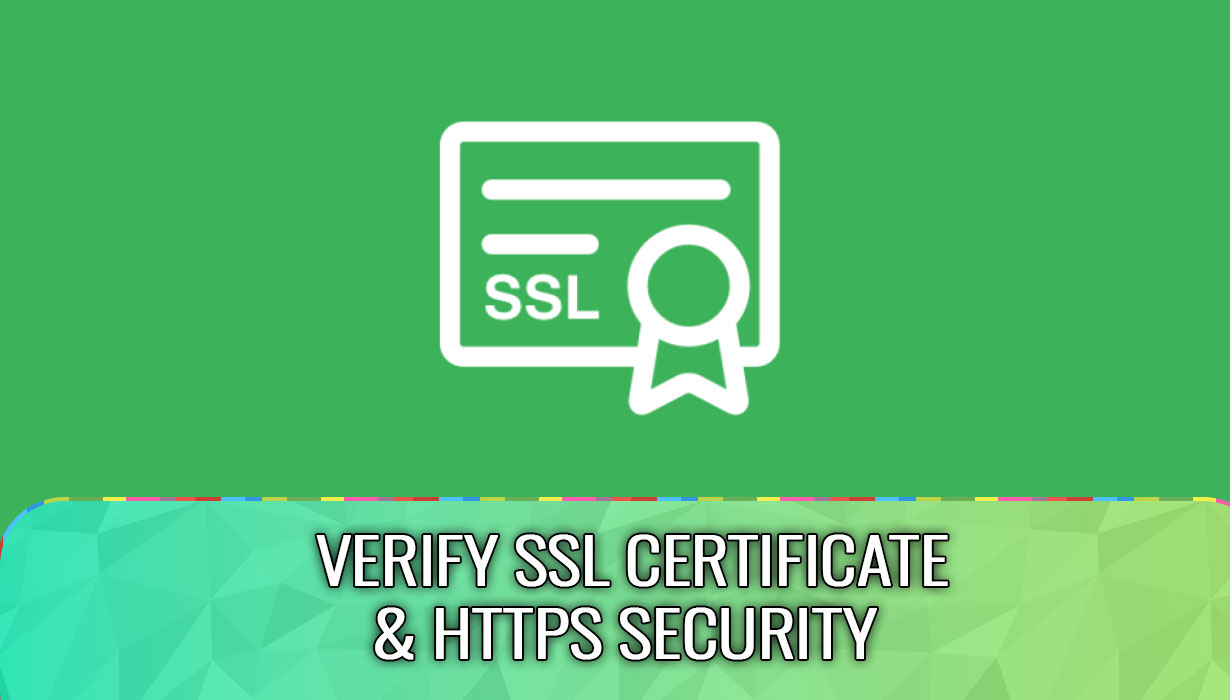
06
Fix SSL Errors: Free Online SSL Certificate Checker Tool
Instantly check your website's SSL certificate for errors, validity, and security. Our free SSL Certificate Checker at A10ROG verifies issuer, expiration date, and certificate chain to ensure your site is secure and trusted. No installation required.
Free SSL Certificate Checker
Ensure your website's security and trustworthiness with A10ROG's free SSL Certificate Checker. An invalid or expired SSL certificate can trigger security warnings, drive away visitors, and harm your SEO rankings. Our tool provides a deep, instant analysis of your SSL/TLS certificate, checking its validity, issuer, expiration date, and more. Protect your site's reputation and your users' data with a single click.
How to Use Our SSL Checker Tool
- Enter Your Domain: Type your website URL (e.g., yourdomain.com) into the input field. No need for https://.
- Click "Check SSL": Initiate the comprehensive scan of your SSL certificate.
- Get Instant Results: Review the detailed report on your certificate's health and status.
- Understand the Report: Use the information below to interpret your results and fix any issues.
What Our SSL Checker Analyzes
Our tool performs a complete SSL health audit, providing you with critical information:
Certificate Validity & Expiration
- Checks: The certificate's start and end date.
- Why it Matters: An expired certificate will show a critical security error in browsers, scaring visitors away. Our tool helps you avoid this.
Certificate Authority & Issuer
- Checks: Which trusted Certificate Authority (CA) issued the SSL (e.g., Let's Encrypt, DigiCert, Comodo).
- Why it Matters: Verifies that a reputable entity issued your certificate, ensuring broad browser compatibility.
Certificate Chain & Trust
- Checks: The complete chain of trust from your server certificate to the root CA.
- Why it Matters: A broken chain is a common cause of "certificate not trusted" errors.
Supported Protocols & Cipher Strength
- Checks: The TLS/SSL protocols (TLS 1.2, TLS 1.3) and encryption ciphers supported by your server.
- Why it Matters: Outdated protocols like SSL 2.0/3.0 are vulnerable and should be disabled.
Why Regularly Checking Your SSL Certificate is Crucial
- Prevent Security Warnings: Avoid the "Your connection is not private" message that loses customer trust.
- Boost SEO Rankings: Google confirms HTTPS is a ranking signal. A valid SSL certificate is essential for SEO.
- Protect User Data: SSL encrypts data between the user's browser and your server, safeguarding login credentials and payment information.
- Build Trust: The padlock icon in the address bar assures visitors your site is secure and legitimate.
Common SSL Issues and How to Fix Them
- Problem: "Certificate Expired"
- Solution: Contact your hosting provider or SSL issuer to renew the certificate immediately.
- Problem: "Certificate Not Trusted" / "Chain Incomplete"
- Solution: This often means intermediate certificates are not properly installed on your server. Your hosting provider can fix this.
- Problem: "Hostname Mismatch"
- Solution: The SSL certificate was issued for a different domain (e.g., www.domain.com vs. domain.com). Ensure you have a certificate that covers all versions of your domain.
- Problem: "Weak Cipher Suite"
- Solution: Update your server configuration to disable weak encryption protocols and ciphers.
Frequently Asked Questions (FAQ)
Q: How often should I check my SSL certificate?
A: We recommend checking it at least once a quarter. However, the best practice is to monitor it proactively. Set a calendar reminder for 2-4 weeks before the expiration date to allow time for renewal.
Q: What's the difference between SSL and TLS?
A: TLS (Transport Layer Security) is the updated, more secure version of the older SSL (Secure Sockets Layer) protocol. While the term "SSL" is still commonly used, most modern websites actually use TLS. Our checker verifies both.
Q: Can I check the SSL certificate for any website?
A: Yes! Our free SSL Certificate Checker works for any public website. Just enter the domain name to see its SSL details.
Q: My SSL is valid, but my site still shows "Not Secure." Why?
A: This can be caused by "mixed content," where your HTTPS page loads resources (images, scripts) over an insecure HTTP connection. Use your browser's developer console to identify and fix these insecure requests.
Secure Your Entire Online Presence with A10ROG
Your website's security is multi-layered. After verifying your SSL, explore our other essential free webmaster tools:
- Website Security Headers Checker: Analyze your HTTP headers for critical security policies.
- Whois Lookup: Investigate domain registration details.
Contact
Missing something?
Feel free to request missing tools or give some feedback using our contact form.
Contact Us